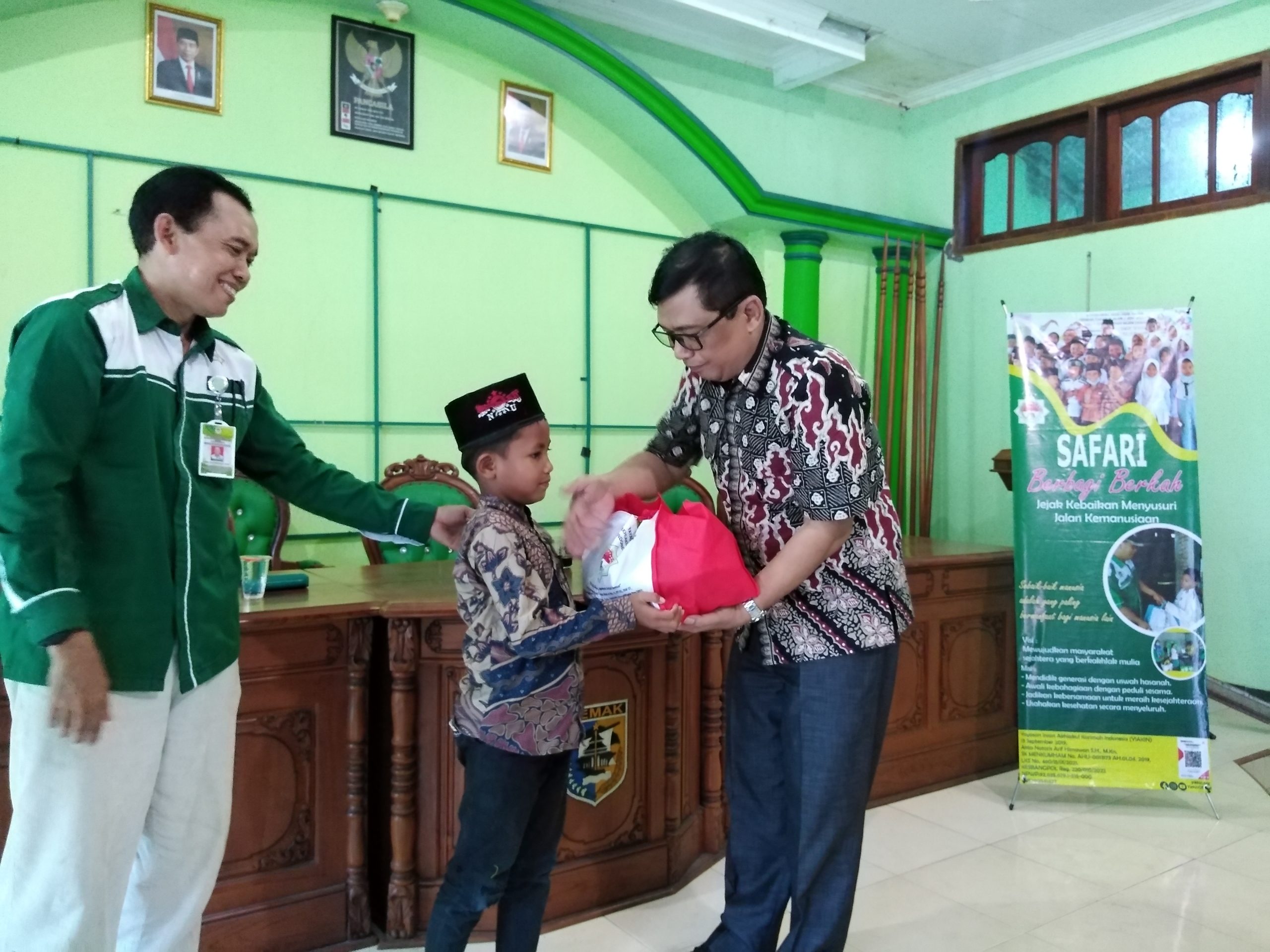
Rabu,29 November 2023. Dalam program safari berbagi berkah, Yayasan Insan Akhlakul Karimah Indonesia berkolaborasi dengan pemerintah desa Raji, kecamatan Demak, kabupaten Demak. Kegiatan ini dihadiri oleh Kepala Desa Raji yaitu Bapak Muhammad Basor. Selain itu, hadir juga perwakilan dari Yayasan Insan Akhlakul Karimah Indonesia, yaitu Bapak Iman Cakramiharja dan Jalal Suyuti.
Program safari berbagi berkah ini bertujuan untuk memberikan bantuan sosial kepada anak-anak yatim dan yatim-piatu di kecamtan Demak, termasuk Desa Raji dan Desa Bango. Bantuan yang diberikan berupa paket sembako. Jumlah penerima bantuan sebanyak 35 anak-anak yatim dan piatu yang telah terdaftar sebagai anak binaan.
Dalam sambutannya, Bapak Muhammad Basor mengucapkan terima kasih kepada Yayasan Insan Akhlakul Karimah Indonesia yang telah peduli dan berbagi dengan masyarakat desa Raji. Ia berharap bantuan ini dapat meringankan beban dan membantu kebutuhan sehari-hari mereka. Ia juga mengingatkan untuk terus semangat belajar, jangan putus asa dan anak-anak harus bercita-cita.
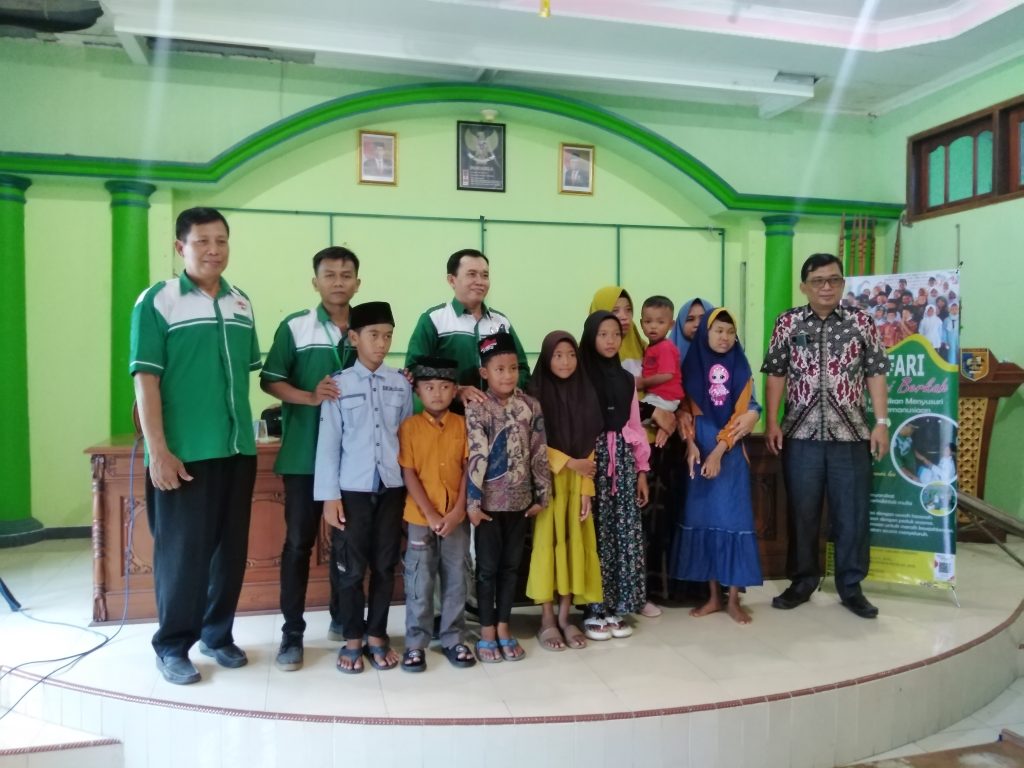
Bapak Iman Cakramiharja, sebagai sekretaris dari Yayasan Insan Akhlakul Karimah Indonesia, menyampaikan bahwa program safari berbagi berkah ini merupakan salah satu bentuk kepedulian dan tanggung jawab sosial yayasan terhadap anak-anak yatim dan piatu. Ia mengatakan bahwa yayasan ini bergerak di bidang pendidikan, kesehatan, dan sosial serta keagamaan. Ia berharap bantuan ini dapat bermanfaat dan memberikan kebahagiaan bagi penerima.
Bapak Jalal Suyuti, sebagai perwakilan lain dari yayasan, menambahkan bahwa program safari berbagi berkah ini juga merupakan bagian dari misi yayasan untuk menyebarkan akhlakul karimah, yaitu akhlak yang mulia dan baik. Ia mengajak warga untuk saling berbagi, bersyukur, dan saling membantu dalam kebaikan.
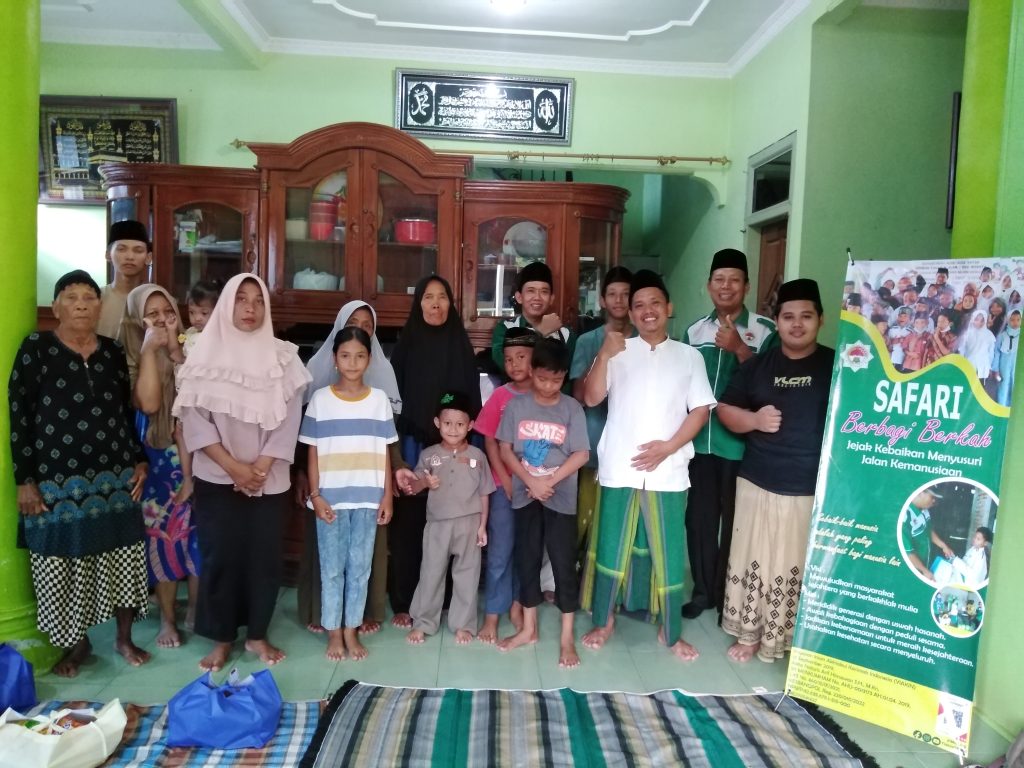

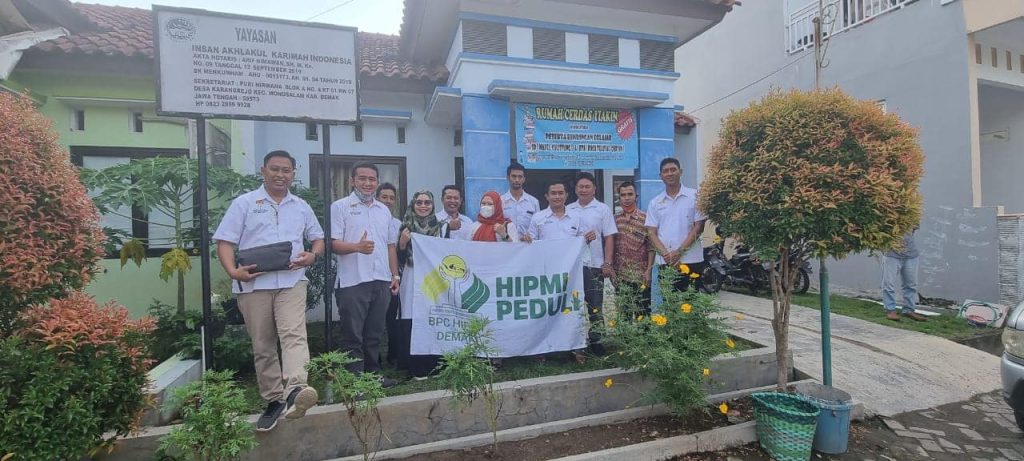
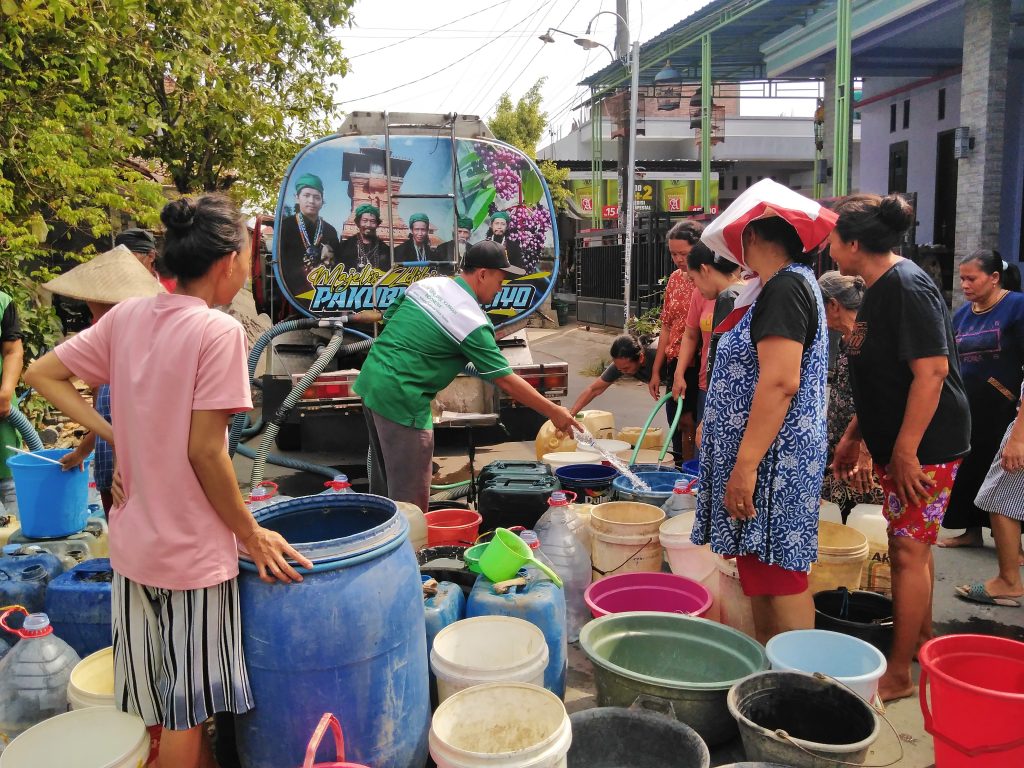
semoga berkah
Semoga sinergi antara lembaga sosial dengan pemerintah i setiap desa semakin terbentuk, sehingga bantuan bisa tepat sasaran.
Alhamdulilah. Semoga semakin maju buat YIAKIN
Alhamdulillah,semoga berkah untuk semuanya Aamin.
Semoga berkah, sukses dan maju terus untuk yiakin
Sedikit dari kita sangat bermanfaat bagi mereka. Indahnya berbagi kebahagiaan.
Alhadulillah…
Alhamdulillah,semoga berkah banyak manfaat dan sukses,maju terus buat yiakin delmak
Aamiin.. siap kak,,
Alhamdulillah, YIAKIN semakin berkembang semoga kedepan bisa kerjasama dg pemerintah khususnya di Kabupaten demak dalam membangun masyarakat menuju Indonesia kuat dan sejahtera.
Aamiin
Subahanallah..siap, semoga selalu istiqomah dalam perjalannya kak..
Masyaa Allah, Pemuda-Pemuda yang enerjik dan berjiwa sosial. Semoga diberkahi dan dirahmati Ilahi Robbi.
Aamiin yaa robbal’alamiin..
Alhamdulillah, memang benar sebaik-baik manusia adalah yang bermanfaat bagi manusia lainnya, dan YIAKIN merupakan salah satunya
Alhamdulillah… Semoga selalu istiqomah dalam perjalannya kak..
Alhamdulillah… MasyaAllah… smoga YIAKIN semakin maju dan berkembang… banyak memberikan manfaat bagi masyarakat terutama yatim, piatu duafa
Aamiin yaa robbal’alamiin..
YIAKIN mensejahterakan semua
Aamiin yaa robbal’alamiin..
barokallah , Alhamdulillah
Alhamdulillah
Baarokallah
aamiin ya robbal’alamiin
Alhamdulillah, semoga bermanfaat dan berkah
Aamiin yaa robbal’alamiin
Alhamdulillah kepada tuhan semesta alam berkat Rahmat dan hidayah nya kita dapat menyalurkan bantuan kepada adik-adik binaan yayasan insan Akhlakul Karimah Indonesia. Dan tak henti2nya berterima kasih sebanyak-banyaknya kpd para donatur dan partisipan semoga bermanfaat bagi sesama. Amin
aamiin.. terima kasih dukungannya kak..
Alhamdulillah semoga Yayasan Insan Akhlakul Karimah Indonesia selalu Istiqomah dalam berbagi kebahagiaan pada anak – anak yatim, piatu, dhuafa dan difabel .
Alhamdulillah…
Alhamdulillah semoga bermanfaat dan barokah,,
Semoga bermanfaat buat warga yg sedang kekeringan air bersih. YIAKIN berbagi.
Ԛuality articles or reviews is tһe key to attract
the users to go to see the web site, that’s what this web site is providing.
Thank you for your response. We will do better. Can I know where you live?
In fact wһen someone dоesn’t understand after that itѕ up to otheг people that
they will assiѕt, so here it happens.
Thank you for responding to this article. Yes, that’s what we do. excuse me, Can I know where you live?
Fantastic article! I appreciate how clearly you explained the topic. Your insights are both informative and thought-provoking. I’m curious about your thoughts on the future implications of this. How do you see this evolving over time? Looking forward to more discussions and perspectives from others. Thanks for sharing!
Thank you for your kind words! I’m glad you found the article informative and thought-provoking. Regarding the future implications of entrepreneurial training for nonprofit beneficiaries, here’s how I see this evolving over time:
### Evolution and Future Implications
1. **Increased Integration of Technology:**
– **Digital Skills:** As technology continues to evolve, incorporating digital literacy and online business skills into training programs will become increasingly important. Beneficiaries will need to understand e-commerce, digital marketing, and online payment systems to stay competitive.
– **Remote Training:** Online platforms and virtual classrooms will play a larger role, making training more accessible to those in remote areas.
2. **Sustainable and Green Entrepreneurship:**
– **Eco-Friendly Practices:** There will be a growing emphasis on sustainability. Training programs may increasingly focus on green business practices, such as eco-friendly product development, sustainable farming methods, and waste management.
– **Circular Economy:** Embracing the principles of the circular economy, where waste is minimized, and products are designed for reuse, repair, and recycling.
3. **Social Entrepreneurship:**
– **Community Impact:** More programs will likely focus on social entrepreneurship, encouraging participants to develop businesses that not only generate profit but also address social issues within their communities.
– **Funding and Support:** Increased availability of grants, microloans, and other financial support tailored to social enterprises.
4. **Customized and Contextual Training:**
– **Localized Content:** Training programs will become more tailored to the specific needs and contexts of the beneficiaries, considering local market demands, cultural factors, and resource availability.
– **Adaptive Learning:** Using data and feedback to continuously adapt and improve the curriculum to better meet the needs of the participants.
5. **Collaborative Ecosystems:**
– **Partnerships:** There will be more collaboration between nonprofits, government agencies, educational institutions, and private sector companies to create a supportive ecosystem for entrepreneurial development.
– **Networking:** Building networks and communities of practice where beneficiaries can share experiences, resources, and support.
6. **Long-Term Mentorship and Support:**
– **Continued Guidance:** Beyond initial training, long-term mentorship and business support services will be crucial. This could include ongoing business coaching, access to markets, and advanced training opportunities.
– **Monitoring and Evaluation:** Implementing robust systems to track the progress of beneficiaries and measure the impact of training programs over time.
7. **Holistic Development:**
– **Personal Growth:** Recognizing that entrepreneurial success is not just about business skills, but also personal development. Programs may increasingly include components on leadership, resilience, and emotional intelligence.
– **Health and Well-being:** Ensuring that entrepreneurs are also supported in terms of their physical and mental health, recognizing the interconnectedness of well-being and business success.
### Conclusion
The future of entrepreneurial training for nonprofit beneficiaries looks promising, with a shift towards more integrated, sustainable, and supportive approaches. By embracing technology, sustainability, social impact, and personalized support, these programs can empower individuals to create lasting change in their communities.
I look forward to seeing how these trends unfold and hearing more perspectives from others on this important topic. Thank you for engaging in this discussion!
Great article! I found your perspective on this topic both enlightening and thought-provoking. The way you break down complex ideas into understandable insights is truly commendable. It’s interesting to see how these developments could shape our future. I’m particularly intrigued by your point about potential challenges and would love to dive deeper into that.
For those who are interested in exploring this topic further, I recommend checking out this resource for more detailed information: comprehensive guide. It offers additional insights that complement what’s discussed here.
Looking forward to hearing others’ thoughts and continuing this discussion. Thanks for sharing such valuable information!
Great article! I appreciate the clear and insightful perspective you’ve shared. It’s fascinating to see how this topic is developing. For those interested in diving deeper, I found an excellent resource that expands on these ideas: check it out here. Looking forward to hearing others’ thoughts and continuing the discussion!
This was a fascinating piece. The author’s insights were very compelling. I’m eager to hear different viewpoints on this topic. What are your thoughts?
My opinion on the collaboration between nonprofit organizations and village governments in providing aid for orphans and the underprivileged is that it is a very positive and strategic step. Here are a few reasons why I support such initiatives:
1. **Holistic Approach**: This collaboration allows for a more holistic approach to helping orphans and the underprivileged. Nonprofit organizations usually have experience and resources that can complement the local knowledge and networks of village governments.
2. **Utilization of Local Resources**: Village governments have direct access to information and data regarding residents in need of assistance. This ensures that aid is given to those who truly need it, reducing the risk of misallocation.
3. **Increased Efficiency**: By working together, nonprofit organizations and village governments can combine their resources and expertise, which can, in turn, increase the efficiency of aid program implementation.
4. **Program Sustainability**: Village governments have more permanent structures compared to many nonprofit organizations. This collaboration can ensure that aid programs continue in the long term, even if the nonprofit organizations face changes or challenges.
5. **Transparency and Accountability**: With this cooperation, transparency and accountability in the distribution of aid can be better maintained. Village governments can help supervise and ensure that aid is distributed fairly.
Overall, such collaborations can bring significant positive impacts for orphans and the underprivileged, and enhance the overall welfare of the community.
I enjoyed the humor in this piece! For more, visit: FIND OUT MORE. Let’s chat about it!